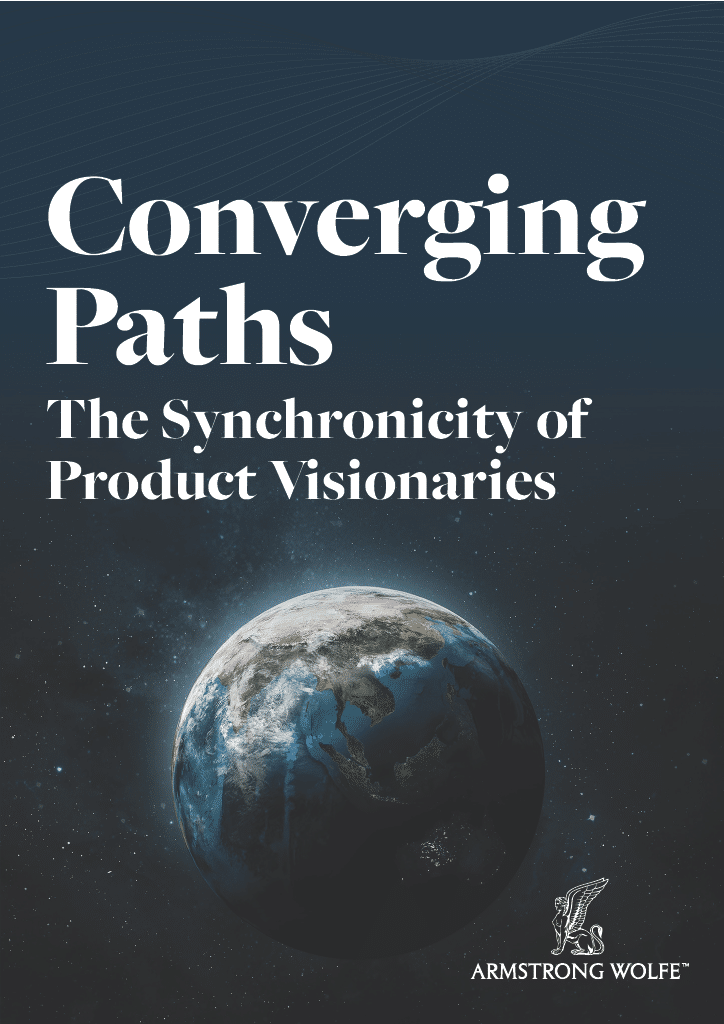Culture in Evolution The role of the COO 1b or not 1b, that is the question
As we navigate the COVID crisis, now would appear the time for the COO community to shape the banking and asset management industries and address the imbalance created by the pursuit of profit over purpose.
Written by Maurice Evlyn-Bufton, CEO, Armstrong Wolfe
Foreword
How this can be done, and where the future of these two intertwined industries rests, are key questions to be answered.
The challenge before the crisis was to discover a new era of optimism, which has been exacerbated by recent events. How to refocus and trigger a liberated pursuit of profitability and benefits for all, but within an entrusted industry founded on good conduct is a question unanswered.
The industry will have to change in response to the impact on the worldwide economy and its workforce. To do so, this phase must be led by innovative, intellectual and inspirational leaders who are bound by ethical behaviour and principles. Just as the captain of a ship leads the vessel, it is the helmsman that steers it. Similarly, just as it is the CEO who sets the vision and drives the business, it is the COO who ensures it sails to calm waters in good order.
Since the credit crunch, most acknowledge that the role of the COO has morphed into being a CAO throughout the interim new regulatory era. The COO’s office has been tasked to meet and deliver upon the seemingly unlimited book of regulation imposed upon the industry by ever vigilant and empowered regulatory bodies.
Pre-COVID, the COO’s attentions were turning enthusiastically to assess how they can support revenue creation, whilst retaining the challenge of delivering lasting cultural change. Then COVID came, and BCP demands not experienced beforehand littered and filled the COO’s in-tray.
Before COVID a few enlightened and optimistic COOs suggested an opportunity existed for COOs to become more empowered to directly support the CEO, and to be given the explicit mandate to own the execution of the CEO’s stated purpose and the consequent cultural change programme.
The explicit mandate to own the execution of the CEO’s stated purpose and the consequent cultural change programme.
In doing so, the COO becomes the ambassador for conduct, behaviour and ethics and, as such, is charged with delivering cultural change (on behalf of and in partnership with the CEO and the business, not as a servant to it).
If this mandate is held by all COOs, and if CEOs collectively see the untapped potential of the COO function, then an industry-wide and consistent approach could be achieved, with all COOs adhering to the common goal of raising standards and cementing cultural change.
It would not be the total solution and it is not the silver bullet, but it would help in no small part.
Note: The CEO needs to be a ‘people person’ and someone with empathy and a connection enshrined in their leadership style. The CEO must additionally partner the COO in the definition, communication and pursuit of purpose, which through effective messaging, helps to define and carry an organisation’s culture.
(See fig.1)
Is this too big a mandate and simply a dream, or is it an opportunity for executive leaders within the COO community to leave a legacy? A legacy born from their response and management of two very different crises.
Some speak of this legacy in the sense of true obligation and a wish to see the industry they have dedicated their careers to left in good order for future generations. They joined an honourable profession and have seen its reputation torn asunder, where many in society would still declare it rendered morally lifeless 12 years on from the banking crisis in 2008.
Despite best efforts to repair this damage, the banking industry especially retains a tarnished status and perhaps significantly for its future, is no longer the ‘go-to’ industry for the best graduates – the people needed to lead it tomorrow.











